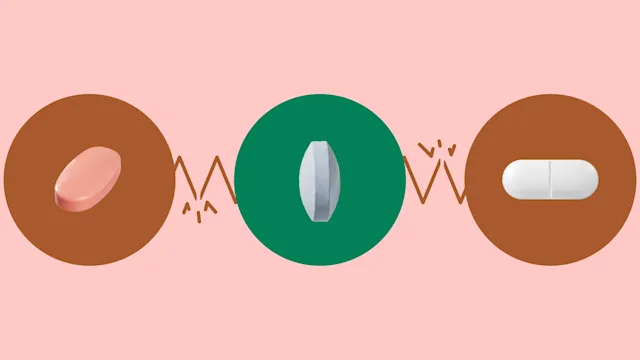If you’re at all familiar with migraines, you can probably name some of the symptoms. You know they’re more than just a headache: They can cause vomiting, sensitivity to light and sound, serious fatigue, and more. They can disrupt your ability to do your job, or make you afraid to travel.
Another effect of migraines is the toll they can have on relationships. Of course, loved ones want to be supportive, but migraines can unintentionally become a source of tension. After all, migraines are still a deeply misunderstood condition.
“A lot of times people who don't experience them will think of them as maybe just a headache,” says Sylvia Mohen, MD, Neurologist in New York City. "They don't understand the degree of physical disability that people with migraine sometimes undergo during their migraines."
The social frustrations of migraine
One of the most challenging aspects of migraines is that they are unpredictable. As a result, many people with migraines find themselves having to cancel plans or leave events early to rest in a dark or quiet room. If someone's migraines become frequent, they may even become afraid to commit to plans in the first place.
“This can put a lot of stress on relationships, particularly if you have a spouse who doesn't understand [why] you need to sit in a dark room for a few hours or even for a full day when you undergo your migraines,” says Dr. Mohen. “If you have little kids who really want you to be present and active with them, they may not understand that your migraines are really disabling and they put you out of commission for the day.”
It can be especially hard if a loved one questions the legitimacy of what you are experiencing. People who don't experience migraines may worry that you're lying or making excuses, which can obviously be detrimental to the relationship.
Nurturing healthy relationships
“I think it's very important to speak to the people in your lives about your migraines, and to give them a sense of just how disabling they are for you,” says Dr. Mohen. “You can try to describe the pain in ways that maybe they can relate to or the associated nausea or the fatigue.” (Check out how these people describe their own migraines.)
For people you live with, it may also help to discuss your triggers and ways you can reduce them in the household. You might mention how you need a quiet home during an attack, or how it would help to keep certain foods out of the home. This can help reduce conflict by potentially preventing attacks, but also making sure you’re on the same page when attacks occur.
You may also need to consider your work relationships. It may help to have your coworkers’ support to reduce tension or resentment. For example, if you need to work from home due to an attack, or you need to leave work abruptly, your coworkers may be more accommodating if they understand what you’re experiencing. This may help prevent conflict at work and keep your work relationships strong.
- PropranololGeneric Inderal
- ImitrexSumatriptan
- AmitriptylineGeneric Amitid and Amitril and Elavil and Endep
That said, you have no obligation to disclose personal health information to them. Learn more about creating an action plan for migraines at work.
Getting help with your relationships
It might go without saying, but it is obviously best to find friends and partners who are supportive and do not hold your migraines against you. Still, even the most empathetic people can misunderstand migraines from time to time, if they do not experience them themselves.
Additionally, if you are nervous about how frequent or severe migraines are affecting your relationships with friends or loved ones, this may signal that your migraine treatment regimen isn’t working. Switching up your treatment might result in better control of your migraines, which would take some pressure off your relationships.
“It might be another good time to speak to your doctor about other options you can pursue to get your migraines under better control,” says Dr. Mohen.
Sylvia Mohen, MD, is a Neurologist at New York Neurology Associates, P.C.
Dr. Alizadeh is a board-certified Plastic Surgeon with private practices in New York City and Long Island and formerly served as the Chief of Plastic and Reconstructive Surgery at Westchester Medical Center and New York Medical College.
References
American Migraine Foundation. (2020). How to best support someone with migraine.
American Migraine Foundation. (2018). Migraine and your marriage.
Buse D.C., et al. (2019). Life with migraine: effects on relationships, career, and finances from the chronic migraine epidemiology and outcomes (CaMEO) study. Headache.
Schwedt, T.J., et al. (2024). Acute treatment of migraine in adults. UpToDate.
Schwedt, T.J., et al. (2024). Preventive treatment of episodic migraine in adults. UpToDate.

Why trust our experts?














